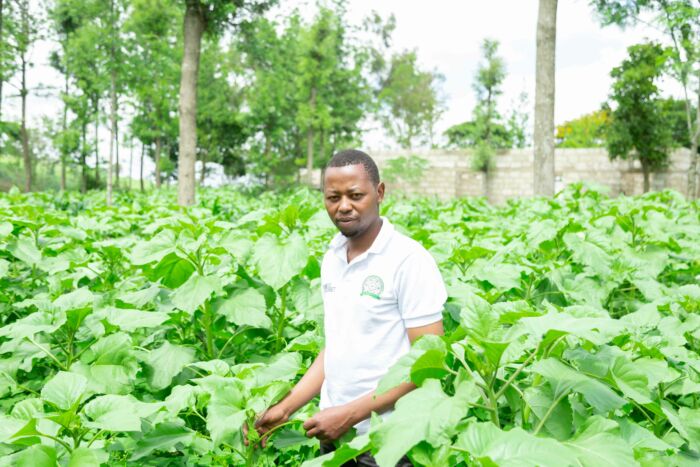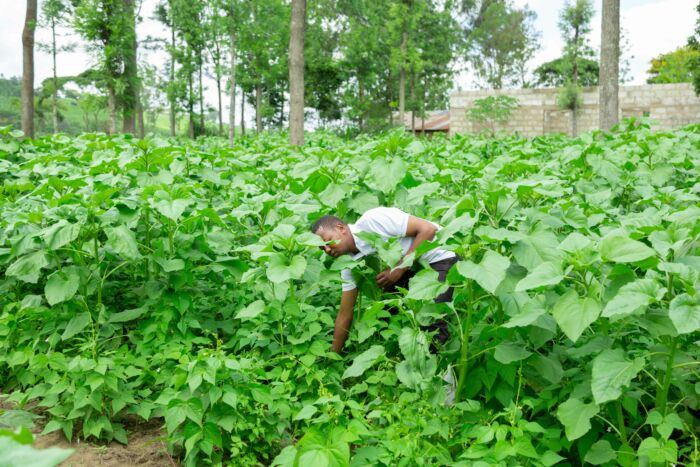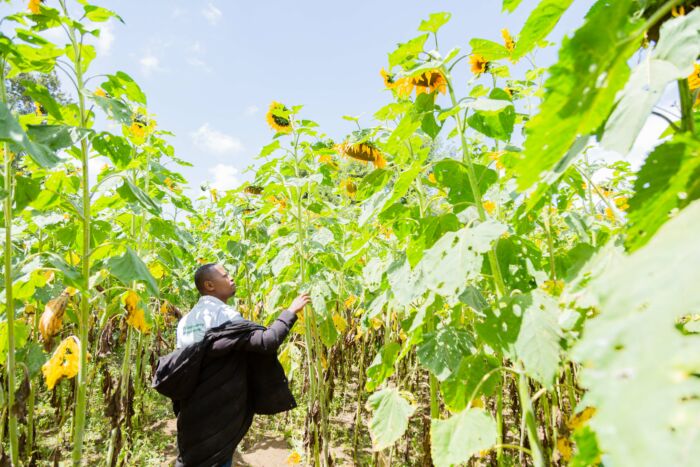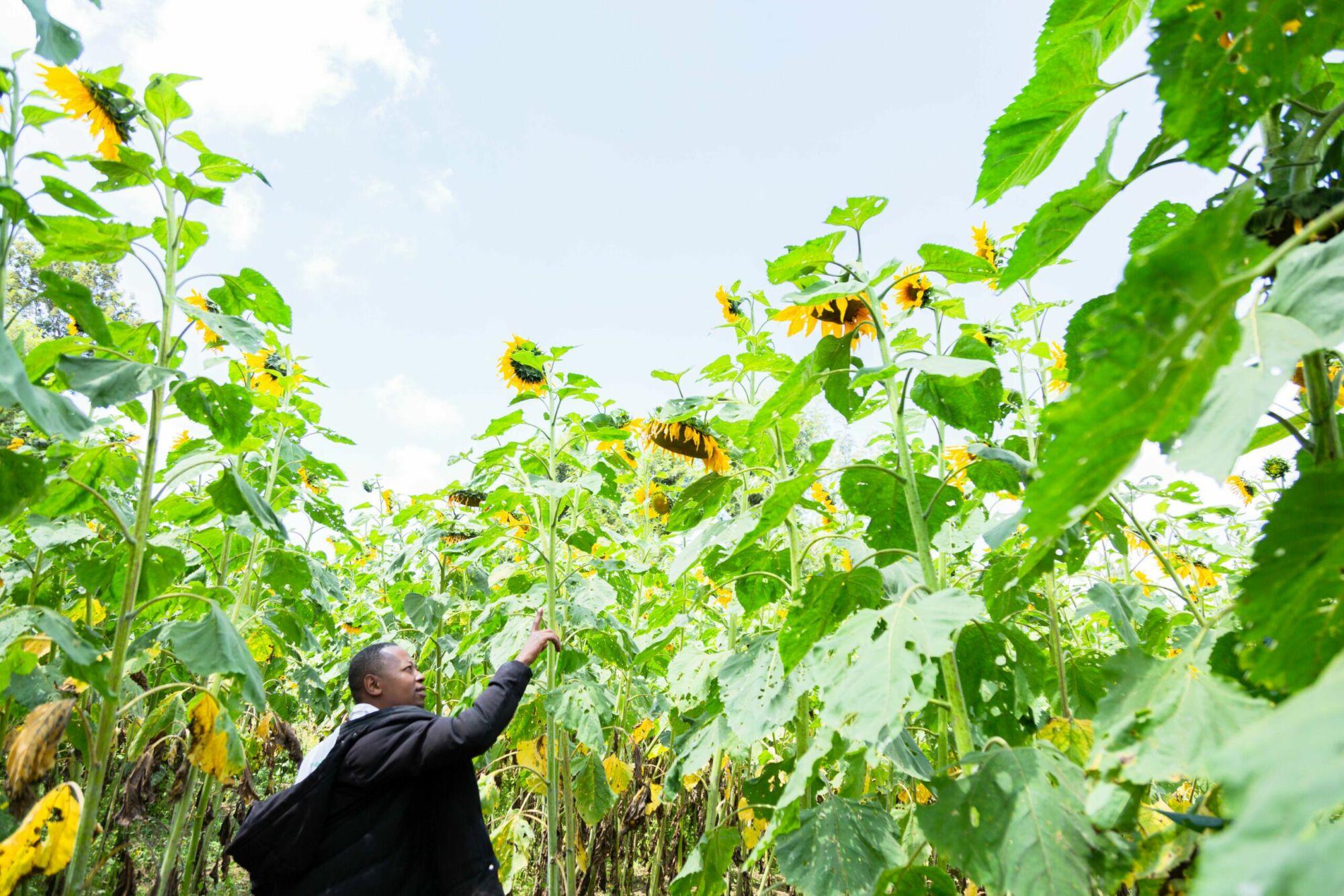
James Kiwia, a 30-year-old, vibrant and young farmer from Ekenywa village in the Arusha region, has decided to take a different path by venturing into farming, a choice that sets him apart from many of his peers who are pursuing motorcycle businesses as one of the many prevailing employment opportunity.
Like many young adults, he initially engaged in a motorcycle business to accumulate capital to support his agricultural vision. After years of hard work in the motorcycle business, James saved enough funds to kick-start his farming endeavors.
He began cultivating maize and beans on the two-acre farm he inherited from his father. After a successful harvest, he expanded his agricultural portfolio by purchasing a dairy cow and motorcycle.
James, always at the forefront of embracing new opportunities, was selected as one of the ten trial farmers in Arusha, DC, participating in the Farmers Organisations Leading Research & Innovation on Agroecology for Sustainable Food Systems (FORI) project. He has been actively demonstrating sunflower cultivation techniques in his designated area, aligning with the project’s objectives.

Through dedication and innate curiosity, James made remarkable progress in his first year as a sunflower value chain researcher. With guidance from experts at the Tanzania Agriculture Research Institute (TARI), he uncovered invaluable insights that will shape his future farming activities.
FO-RI has enriched my farming knowledge. I have learned how to plan and manage my farm effectively, something I lacked before. Now, I can confidently sow and monitor my farm.” James expressed his appreciation. He adds, “In the past, we couldn’t distinguish between seed varieties and their impacts; we relied on word-of-mouth advice for our farming practices.” James emphasized that FO-RI has introduced sunflower farming and ignited a collective interest among residents traditionally focused on tobacco cultivation.
He marveled at the shift in planting preferences among the youth and his neighbours, noting that they have embraced sunflower cultivation during a season when tobacco was historically the norm. Farmers in Arusha consciously chose to shift away from tobacco farming, driven by a blend of economic and practical factors. Their decision was rooted in the understanding that cultivating sunflowers offered a more profitable source of income and involved simpler cultivation methods. The compelling economic advantage of higher returns from sunflower cultivation and its dual role as a food source and revenue generator inspired farmers to transition away from tobacco. This strategic move signifies a commitment to a more sustainable and financially rewarding agricultural practice.

This is a remarkable success. Every farmer eagerly adopted the sunflower seeds we distributed. FORI is ushering in transformative changes,” he added, envisioning a bright future for sunflower farming in the area.
The community’s perception of the transition from tobacco to sunflower has been a positive change, because tobacco prices have fallen, and the management practices involved in tobacco cultivation are considered tedious due to numerous field operations. Tobacco is still seen as the sole cash crop, while sunflower is preferred crop since it is both a cash and a food crop.
Farmers not only obtain oil for consumption from sunflower but also sell the surplus for money. Sunflower seed cake is used for livestock feed and as raw material for processing other products, such as shoe polish.
The agroecological planting of sunflower involves less struggle, with fewer managerial and intercultural operations. Disease and pest control primarily rely on agroecological methods rather than chemical pesticide applications. This change is practically impacting the community economically, socially, and environmentally.
Economically, the reduction in farming operations through transitions has cost implications. Socially, some community members prefer not to plant tobacco due to religious beliefs. Environmentally, tobacco farming contributes significantly to environmental pollution. Therefore, the community positively views tobacco replacement with sunflower farming under agroecological principles.
Tanzania Agricultural Research Institute (TARI) interactions with farmers have been positive, providing a platform to communicate research findings directly to farmers.. The lead farmer research initiative has successfully reached the larger community. Innovation platforms have facilitated meetings with different actors, including processors and traders along the Sunflower value chain.
“TARI also values its interactions with farmers and sunflower value chain actors to enhance the institute’s visibility. It allows for feedback from farmers and value chain actors, enabling the institute to fine-tune its research agenda to address smallholder farmer needs. This interaction has also facilitated the exchange of indigenous knowledge between researchers, field teams, and farmers,” explains Seuri Albert Mollel, Research Officer with TARI.
